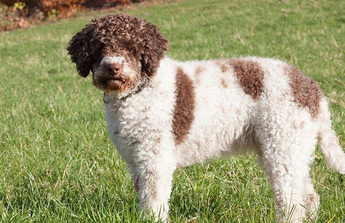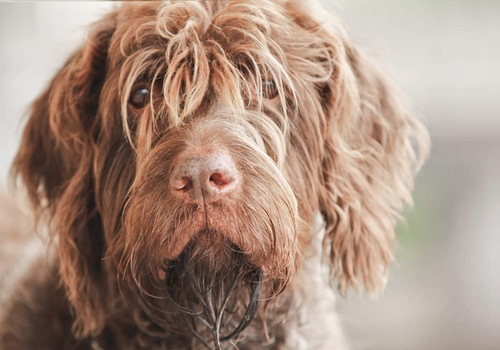The Wirehaired Pointing Griffon was developed sometime around 1870 by a Dutch breeder named Eduard Korthals. An enthusiastic hunter, his goal was to breed a dog that would hunt in all kinds of terrain.
Korthals mixed German Griffons, French and German Pointers, Spaniels,Barbetsand a Setter. He developed the Wirehaired Pointing Griffon in his breeding program in less than 20 years, writing a standard, and in 1916 formed the Griffon Club of America.
The dogs excel in small-game hunting, such as hare and quail; they are eager hunters with fine noses. That same year he showed sixteen Wirehaired Pointing Griffons at the Westminister Kennel Club Dog Show in New York.
In the 1980s a select few breeders decided to mix the Cesky Fousek into the Wirehaired Pointing Griffon lines. This caused an uproar and the American Wirehaired Pointing Griffon Association was formed with the goal of preserving the purity of the original breed. The American Wirehaired Pointing Griffon Association is the AKC parent club for the WPG. The Wirehaired Pointing Griffon was recognized by the AKC in 1887.










